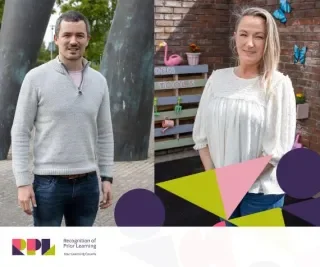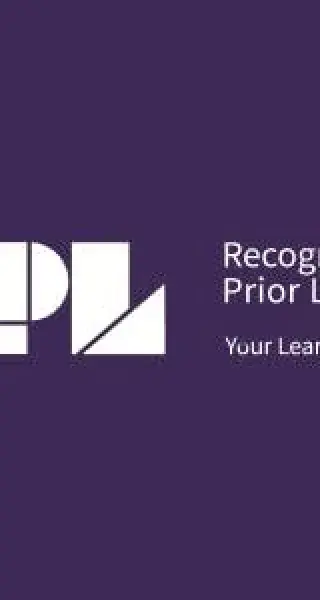Recognition of Prior Learning (RPL) Applications
You may or may not have a formal qualification however, you probably have an abundance of relevant learning from life and work that we value highly. This learning could qualify you for programme entry, advanced entry, and exemptions through the RPL process.

Recognition of Prior Learning (RPL) at DkIT
Welcome to DkIT’s RPL webpage. In visiting this webpage, you have taken a step closer to discovering the many opportunities that are open to you. We are committed to enabling lifelong learning and to supporting you to fulfil your academic potential.
You may or may not have a formal qualification however, you probably have an abundance of relevant learning from life and work that we value highly. This learning could qualify you for programme entry, advanced entry, and exemptions. We know that your prior learning counts, so why not contact us to start the next stage in your personal and professional development.
What is RPL
Recognition of Prior Learning (RPL) is a process by which prior learning is formally valued. It is a means by which prior learning is identified, assessed, and recognised by an educational institution as part of its programmes, courses, and/or modules on Ireland’s National Framework of Qualifications. This makes it possible for an individual to build on learning achieved and to be rewarded for it.
Recognition of Prior Certified Learning (RPCL)
Where a learner has already been awarded certification for a formal programme taken at another institution or training organisation, this prior learning can be recognised and may entitle the applicant to admission to a programme, exemptions from some parts of a programme or advanced academic standing within a programme. Read more about Learning Routes.
Recognition of Prior Experiential Learning (RPEL)
This involves the awarding of credit for learning from experience, i.e. learning which has not previously been academically accredited. In this case, the candidate must prove that the required learning outcomes have been achieved.
Types of RPL
Through the recognition of prior learning, DkIT commits to give value to all relevant learning, irrespective of mode or place of learning. Recognition will normally be given:
- Non-standard admissions (into year 1, non-standard entry criteria)
- Advanced entry into a programme (into year 2 or subsequent years)
- For credit or a grade on a programme (for all types of learning)
The RPL Process
A Pilot Framework has been developed for the Recognition of Prior Learning in Higher Education.
Stage 1: Research
What is it you are considering studying? Consider your previous jobs, what did you enjoy about them?
Your interests and past experiences, is there something that you are passionate about? Is there a career opportunity that you would like to follow?
Stage 2: Contact
DkIT welcomes learners onto the majority of its programmes. Please make contact with the DkIT RPL Officer and they will ensure you get the guidance you require before you start your application.
email: [email protected]
Stage 3: Register
If you are applying for a module exemption you will need to register as a student first, via the standard entry route.
If you are applying to gain entrance to a programme, ensure that your application is made in plenty of time.
Stage 4: RPL Application
Please download and complete the relevant application below and email your application to [email protected].
Please ensure you include all relevant information and supporting documents.
Stage 5: Assessment and Result
DkIT academics will assess the application documentation and a meeting between assessors and the applicant will be organised.
Applicants will be invited to discuss their certification and experience and share original copies of their documentation.
The result of the application will be made in a timely manner.
More Information
For more information about the RPL application process and how you can apply, please email [email protected].
Sample RPL Document Evidence
| Types of RPL Evidence | Description | Examples of Evidence |
| Formal learning | Courses which were formally organised and assessed. |
|
| Non-formal learning | Training events which were organised but did not necessarily have assessment. |
|
| Informal learning/self-managed learning | Learning you achieved that was not organised by others |
|
| Work history and job descriptions | Aspects of your paid and voluntary work that are relevant to the module |
|
| Samples of work | If there is physical evidence of your prior learning other than certificates etc |
|
| Reports from employers/managers | If there is no tangible evidence of your learning it may be possible to arrange verification from third parties/employers/managers |
|

RPL and Enterprise
RPL also ensures that enterprises have access to an education and training system that is relevant and flexible to their needs. It can facilitate accelerated learning and upskilling/reskilling opportunities to meet workforce needs at local, regional, and national levels.
/offices/admissions/rpl/enterprise
Dundalk Institute of Technology RPL Policy
Download the latest Dundalk Institute of Technology Recognition of Prior Learning (RPL) policy.
View RPL Policy
Glossary of Terms for RPL
This brief glossary aims to explain some of the terminology that learners may come across during their research and application phases.
/offices/admissions/rpl/glossary
National RPL Project in Higher Education
This ambitious 5-year (2020-2025) €6.9m project is funded by the Higher Education Authority HCI Pillar 3 (Innovation & Agility). The national project team based in THEA (Technological Higher Education Association) works closely with our co-sponsors, the Irish Universities Association, as well as 19 project leads based in each partner higher education institution. Our goal is to build on our collective work to date to make RPL an integral and vibrant part of our sector, one which offers lifelong learning opportunities to learners and enterprise.
https://www.priorlearning.ie/
DkIT Recognised Prior Learning Project Webpage
Our vision is that RPL is an integral part of the higher education system, widely understood, celebrated and utilized as a flexible pathway to further learning, certification and professional development.
/offices/admissions/rpl/overview